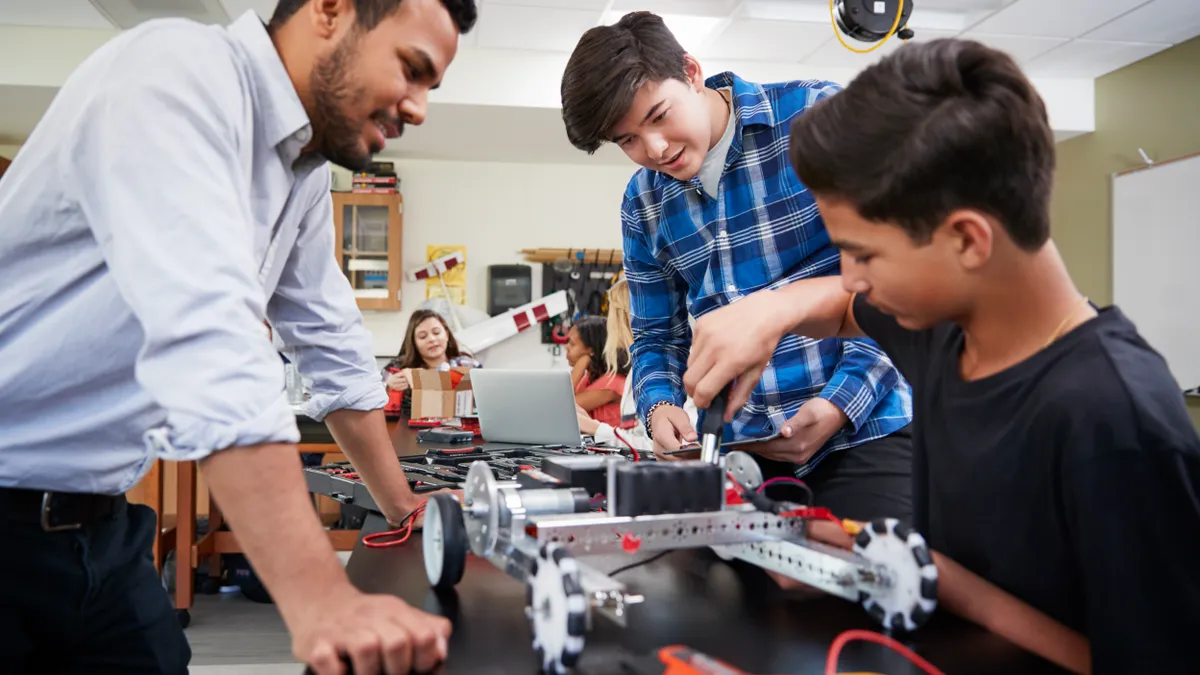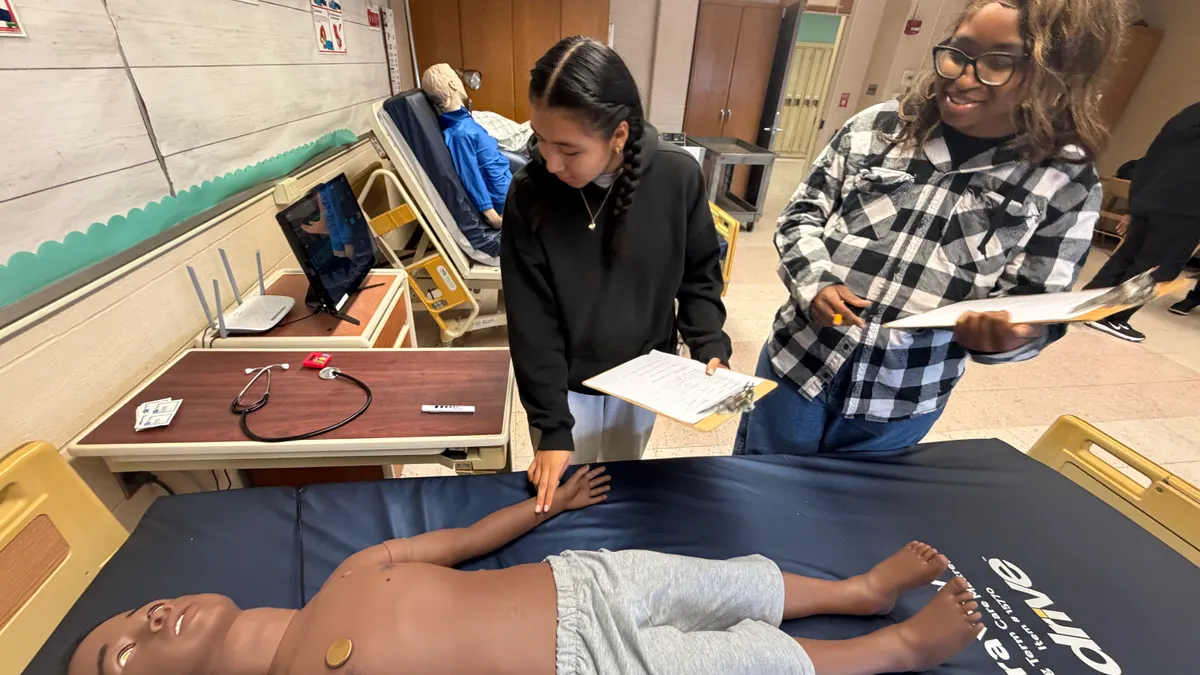Aaliyah A. Samuel is the president and CEO of the Collaborative for Academic, Social, and Emotional Learning, or CASEL. Stan Litow is the chairman of the National Pathways Initiative and a former IBM vice president.
Graduation season is here — an exciting time when students are making plans for their futures. Parents and teachers will send them off, hoping they have prepared them well for college, trade schools, the military, jobs or wherever they go next.
But with artificial intelligence poised to replace some of the very skills that college and career readiness programs have focused on developing over the last few decades, it’s time to redefine what it means for students to be ready for this new technological era and a rapidly changing job market.
To be future ready, students need strong academic knowledge, workplace skills and training, all coupled with social and emotional skills like collaboration and initiative. While many are concerned AI could replace workers and technical tasks, it’s clear to us that these human skills are the most in-demand skills in the marketplace, and the need is not going away.
Already, business leaders consistently rank social and emotional skills such as self-awareness, conflict resolution and effective communication among the most valuable in prospective candidates. Scan the job postings for the top in-demand careers, and you’ll find that getting hired as a nurse, software developer or lawyer all require flexible problem solving, teamwork, self-discipline and a host of other foundational social and emotional skills.
By their very nature, social and emotional skills require human interactions that AI will never fully replicate. While AI may one day be able to display surface-level empathy and creativity, it cannot replace the deep introspection or meaningful connections that create successful teams and thriving workplaces.
This is why, now more than ever, we need to help young people develop critical social and emotional skills that will set them up for success in a rapidly changing, highly competitive job market. These skills can be intensified as a result of experiential learning via paid internships that allow workplace skills to be acquired along with needed academic preparation.
Social and emotional learning — a well-researched approach to developing students’ self-awareness, self-management, social awareness, relationship skills and responsible decision-making — should be integrated along with all educational efforts in both K-12 and postsecondary education to prepare young people for career success. If we fail to prepare our children in this way, expect employers like former Google VP Claire Hughes Johnson to start looking elsewhere.
Hughes Johnson puts self-awareness at the top of her recruitment wishlist. To Johnson, technical job skills and experience were secondary to skills like self-awareness since the technical skills could be learned on the job — or, as we’re seeing now, can be replicated by AI. And she’s not alone.
Global companies like Citi have simultaneously increased their digital services while also putting greater focus on new hires’ social and emotional skills required to support the face-to-face interactions clients are still demanding.
Research shows high-quality SEL programs can develop the personal and interpersonal skills that give young people a competitive edge in the workplace. SEL encourages the development of self-awareness, or the ability to understand one's own emotions, thoughts and values — and how they influence behavior across contexts.
Self awareness is critical at work because it allows you to be honest with yourself about where you need to improve, which helps you to be open to feedback to help you grow, learn and become a leader. When working on a specific project, self-awareness enables you to be open to changing course when things are not going in the right direction — by keeping you honest about what’s working and what isn’t.
SEL also develops skills like empathy and curiosity that are crucial to building strong and innovative teams. While AI will replace some technical skills and improve productivity, it’s no substitute for a motivated team member or inspiring leader who sparks creative, out-of-the-box thinking that drives business growth. It can’t replace the networking sessions or the human relationships that create sales and clients, and it has not yet replicated the flexibility needed in unpredictable problem-solving jobs.
The future of work is bound to evolve now that AI has the capability to take on some tasks. But this very evolution is what requires social and emotional skills like adaptability, problem-solving and perseverance.
It is now more crucial than ever to invest in teaching these durable social and emotional skills that apply across industries and integrate them with an effective, high-quality academic curriculum. SEL offers a pathway that helps our young people succeed, no matter what the future holds.


















